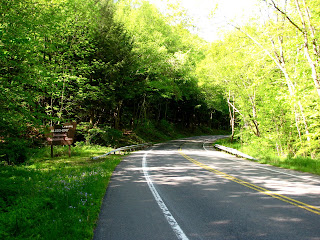


Too Toney
To Be Thomaston?
Bobby Marconi becomes an esteemed artist, but by the time we find him in Italy, he has, ironically, exchanged his father's Italian name for his mother’s Noonan. What does all this amount to? Is he shining the light of High Noon on the subjects in his work? But his paintings tend to be grim; so maybe he just
seeks the light of noon. Maybe he wants nothing more symbolic than dodging his father's shadow, but when you begin with the name Marconi and end up
choosing Noonan, it's hard to call it casual coincidence.
Big Lou Lynch’s brother is Dec, short for Declan--pronounced
deck. I’m glad I first encountered “Deck” from the audio book, or I'd have been distracted by the way I was supposed to hear it. Even so, I always choked on it just a little. It's a short, tough-sounding word, which is apt. I suppose it also looks like the abbreviation of December, the onset of winter, season of death; but at the same time it's the traditional birth of Christ (and except for the Bergs, these are Catholic families). How does Dec as a character amount to December (or a deck or Christmas or anything else)? Should I stop wondering? And if there's an answer, is the symbolic name worth the attention-seeking oddness and the questions about pronunciation?
Here and possibly elsewhere, Russo seems to be stretching for something like allegory that is neither clear nor necessary. Nan Beverly has one of the most fitting names in the book; the casually abbreviated "Nan" is at once more youthful and more stately than Nancy. Combined with the surname "Beverly," it smacks of aristocracy, at least a little, without forcing some cosmic symbolism in her character or the narrative as a whole.
Jerzy Quinn. Is he a football jersey? A Jersey cow? With or without symbolism, surely we can’t say that somebody named Jerzy Quinn is just some guy; and in the story line, he is indeed more than a prop. But why the self-conscious name for him?
So, combined with yesterday's post, there's a primer on name symbolism or something along those lines in
Bridge of Sighs. Are there other examples? What have I missed in the names of characters and perhaps places? With such evocative character names, why a town with a boring name like Thomaston? Maybe the oridinary name belies a complex reality. Are there any votes for doubting Thomas in the Bible? If so, how would that be relevant?
Notice that I haven’t even touched upon Tessa (Contessa? was it—a contest?) or Sarah (again a biblical possibility), or Owen (is he “owing” someone or something?). I'm reaching, I know, but Mr. Russo has opened that door.
So before you call me one more hair-splitting, anal-compulsive English teacher, ask yourself: even if I've forced the issue here, can all those names be accidental? And as for my modestly New Critical bias, I offer this: whether or not it was the author’s intent, those names have crept into the text, and there they beg for us to do something with them.
Finally, I wonder if the author is wise to infuse a realistic story with such teasing--and some might say, relentless--symbolism. Doesn't it all feel somewhat mechanical, forced, formulaic? It makes a fun game for English majors (or is it math majors who especially like this kind of thing?), but such symbolism might also imply that the characters and events don't carry enough depth and complexity in the real world and thus need an artificial, imposed scheme to become important.
My internal jury is still deliberating, but I suspect it will find that these lives and personalities have plenty of gravitas on their own, without the author's parental over-protection: "I shall enlarge my children's place in the universe by bestowing grand labels upon some of them." Besides, interference from the father is not the way one becomes a character of consequence.
On the other hand, how can you quarrel with the wit and the implications of a town character named Gabriel Mock? Do we trust his philosophizing, or is he mocking himself as well as others? If he's holding himself up to mockery, are we laughing with him or at him? How does our laughter affect our sympathy and respect for him, for surely we have some? There might have been times when I cared more about him (and his son) than any character in the book.
Why do my juries seem to be in eternal deliberation? It's tiring. In any case, a novel that raises all these questions, plus the topics I brought up last summer--surely such a work is no trivial matter and deserves much more praise than criticism.
* *



 HE cat went here and there
HE cat went here and there 














































